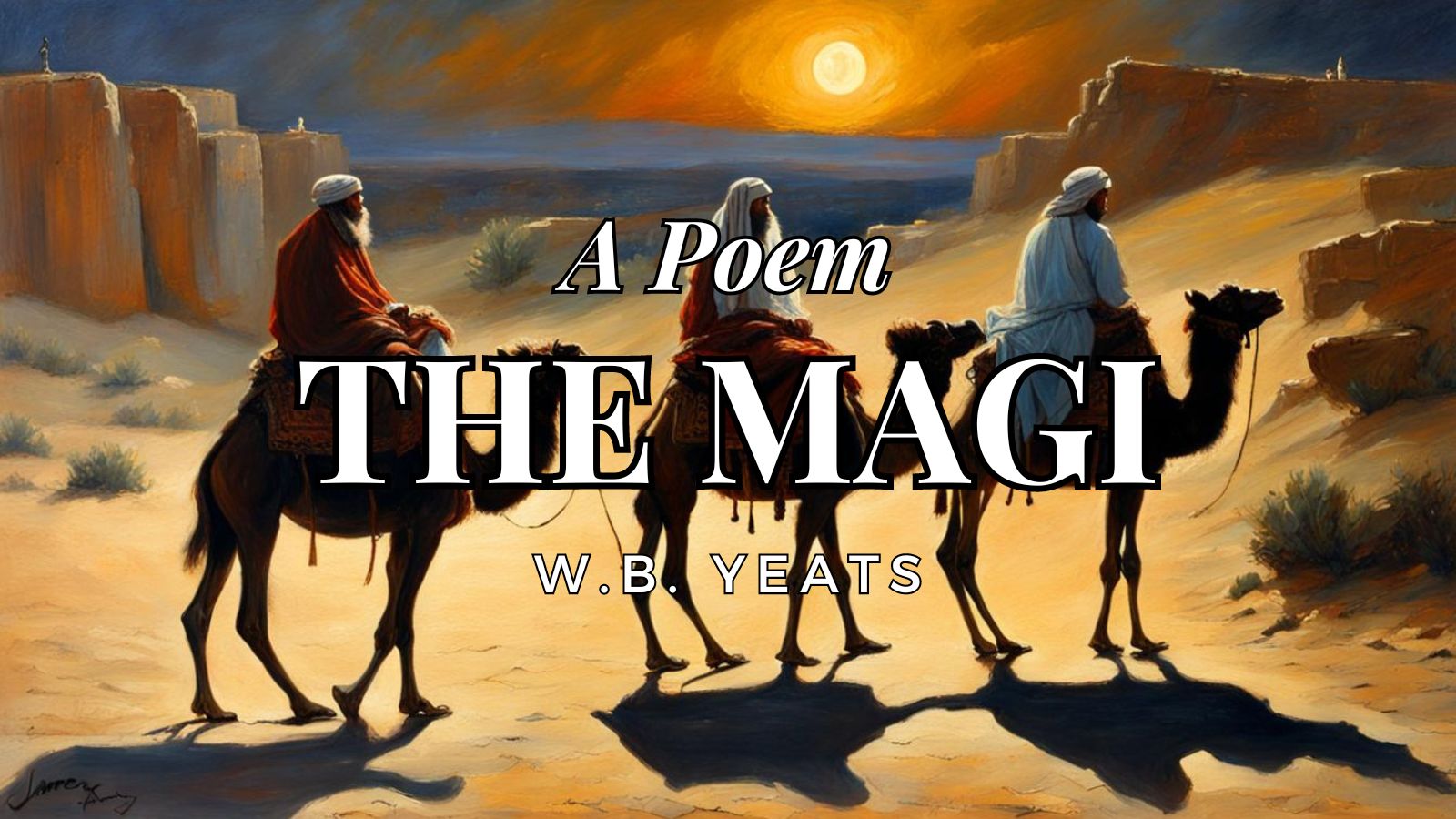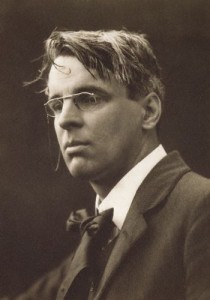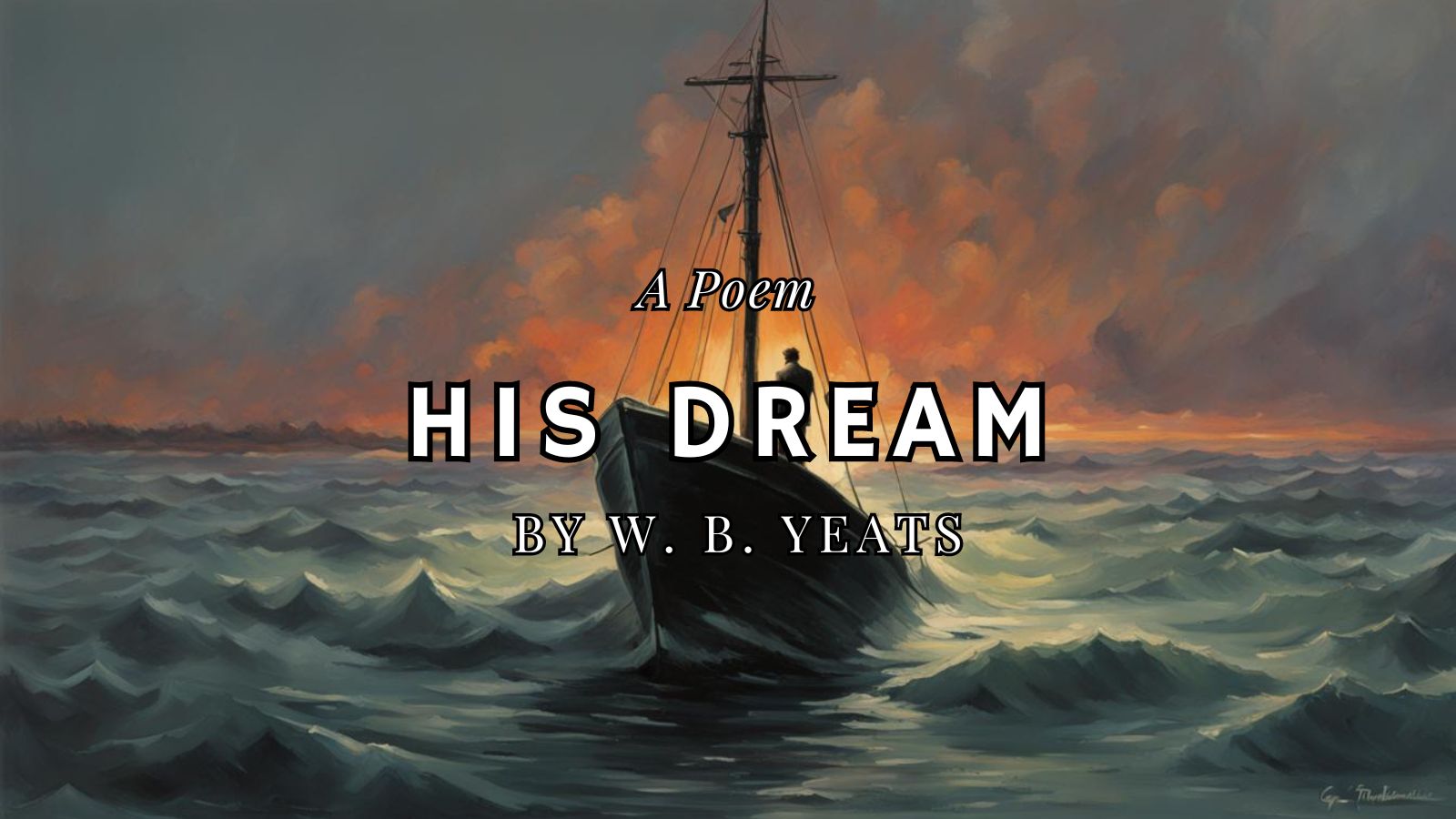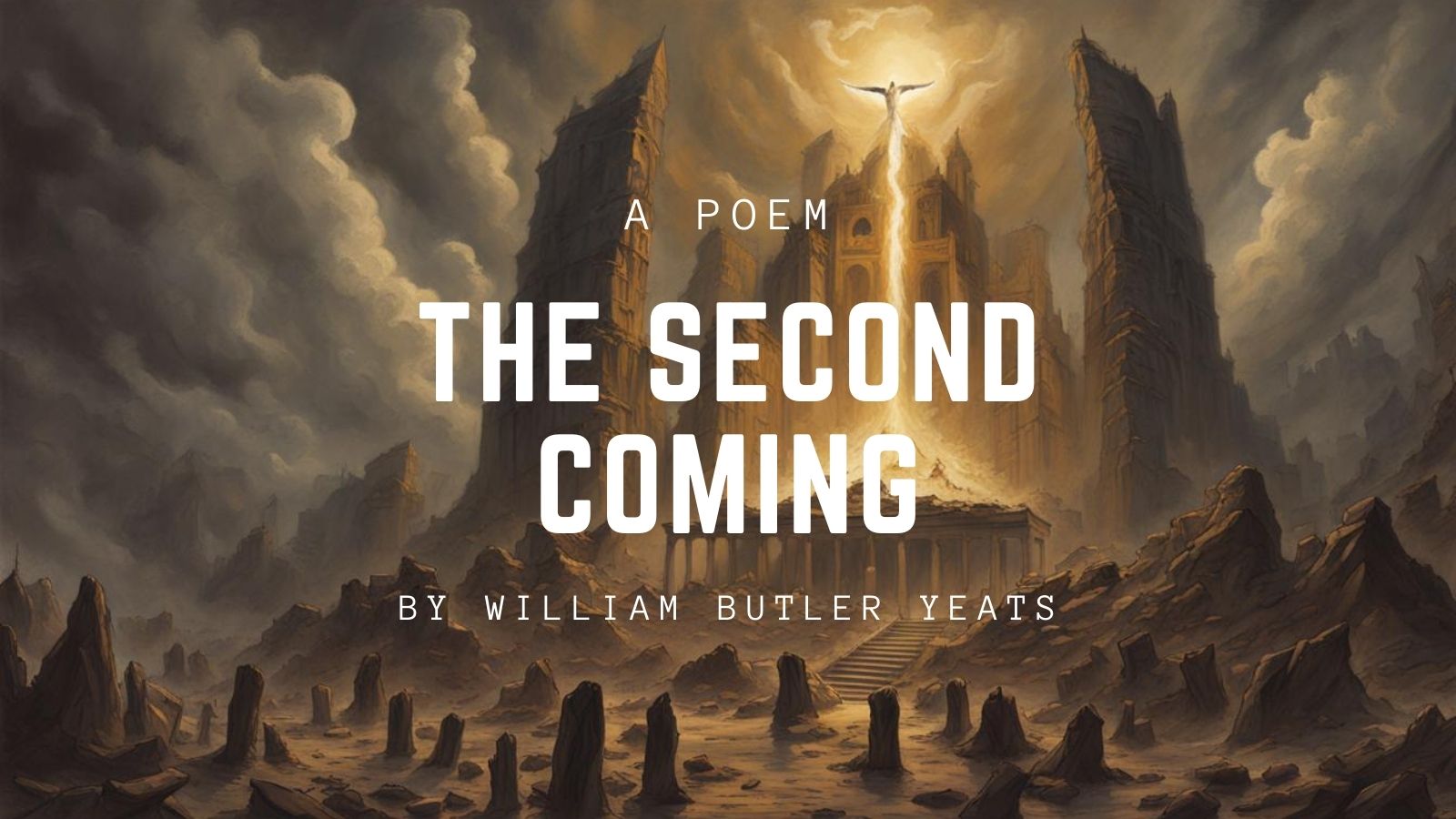The Magi
by William Butler Yeats
Now as at all times I can see in the mind’s eye,
In their stiff, painted clothes, the pale unsatisfied ones
Appear and disappear in the blue depth of the sky
With all their ancient faces like rain-beaten stones,
And all their helms of silver hovering side by side,
And all their eyes still fixed, hoping to find once more,
Being by Calvary’s turbulence unsatisfied,
The uncontrollable mystery on the bestial floor.
###
William Butler Yeats (1865-1939) was one of the foremost poets of 20th century literature. An Irish poet and playwright, Yeats helped drive the Irish Literary Revival and co-founded the Abbey Theatre. He was awarded the Nobel Prize in Literature in 1923 for what the Nobel Committee described as “inspired poetry, which in a highly artistic form gives expression to the spirit of a whole nation.”
Yeats was born in Dublin and spent his childhood between London and County Sligo in Ireland. The Irish landscape and folklore of his youth informed much of his poetic imagery and nationalistic sentiments later in life. Though he trained as a painter initially, Yeats turned fully towards poetry in his twenties while becoming involved in occult circles in London. He published several poetry collections in the 1890s as well as plays rooted in Irish mythology.
Alongside Lady Gregory, Yeats was a driving force behind the Irish Literary Revival aimed at reviving native Irish language and culture through art. As a playwright, he co-founded the Abbey Theatre with Gregory and others as a home for Irish drama. Over his long and prolific career, Yeats cemented his legacy as one of Ireland’s most revered writers, noted for his imaginative lyricism and powerful vision infused with Irish politics and mythology. His poems of unrequited love, Irish rebellion and the arcane remain widely influential in modern literature.



